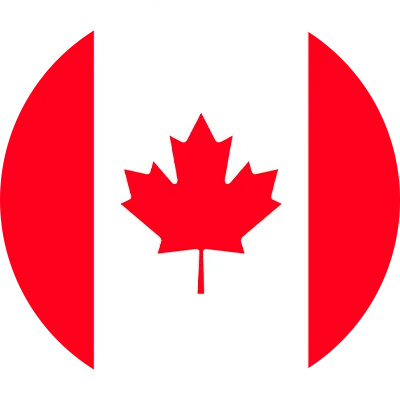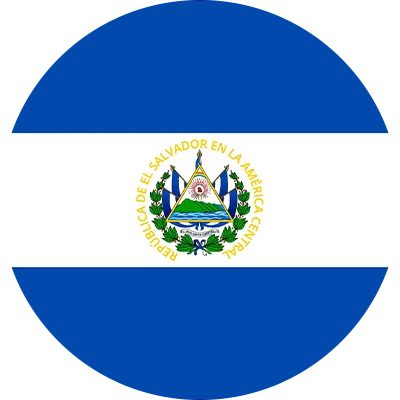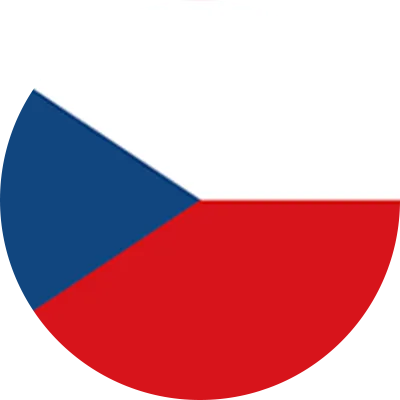Canada MSB Registration
Registering as a Money Services Business (MSB) in Canada provides your company with access to a broad market and regulatory stability, making it ideal for businesses offering currency exchange, money transfers, virtual currency services, and more. With our support, you can easily navigate Canada’s MSB registration and compliance requirements.




Here's how we help you succeed:
- Your External Compliance Team: We handle the entire MSB registration process with FINTRAC, ensuring compliance with Canada’s AML and KYC regulations and submitting a fully compliant application.
- Comprehensive Support: We offer a complete registration solution, including legal consultation, document preparation, AML/KYC policy development, audit arrangements, and continued compliance support.
- Expert Guidance: Our experience ensures a smooth, efficient registration process. If necessary, we can also assist with setting up a Canadian bank account or acquiring a pre-existing MSB entity.

Permitted Activities as an MSB in Canada
- Foreign Exchange Dealing: Offering currency exchange services, including both fiat and virtual currencies.
- Issuing or Redeeming Money Orders: Authorized MSBs can issue or redeem money orders, checks, and similar payment instruments to facilitate various types of domestic and international transactions.
- Money Transferring: MSBs are permitted to transfer funds on behalf of clients, acting as intermediaries for secure money movement.
- Digital Payment Processing: MSBs can serve as digital payment processors, enabling secure, fast payment transactions between multiple parties, such as individuals, businesses, and banks.
- Remittance: MSBs also specialize in remittance processing, offering quick, efficient transfers for clients sending money internationally.
- Dealing in Virtual Currencies: MSBs can offer services that facilitate transactions involving cryptocurrencies and virtual assets, whether through trading platforms or other financial service providers.
Who Regulates Canada MSB?
In Canada, MSBs are regulated by the Financial Transactions and Reports Analysis Centre of Canada (FINTRAC). Additionally, if an MSB provides retail payment services, it must also register with the Bank of Canada under the Retail Payment Activities Act (RPAA). This dual regulatory framework from FINTRAC and the Bank of Canada ensures compliance for MSBs and the security of customer funds.
Why Register as an MSB in Canada?
- Cost-effective: Canadian MSB registration is straightforward with low application fees, and there’s no requirement for a security deposit or monthly maintenance fees.
- No Local Personnel Requirement: Canadian MSB licensing has simplified personnel requirements, needing only a director and a compliance officer, with no residency requirement for either role.
- No Minimum Capital Requirement: There’s no minimum capital requirement, which allows self-funded businesses to launch operations with minimal setup costs.
- Build Trust: Canada’s strong regulatory framework for MSBs establishes a trustworthy environment for financial services, which attracts global investors and builds customer confidence.
- Market Visibility: MSB registration in Canada is a recognized standard for many financial service providers, particularly for digital currency exchanges and payment platforms.
- Broad Range of Services: Canadian MSBs are permitted to offer a wide range of services, including foreign exchange, fund transfers, issuance and redemption of negotiable instruments, virtual currency transactions, and payment services.
Difference Between MSB and fMSB
There are two types of registrations: MSB (Money Services Business) and fMSB (Foreign Money Services Business). Here’s a breakdown of the key differences:
MSB:
An MSB has a physical presence or office in Canada, operates as a registered Canadian entity (either as a corporation or an LLC), and provides services to persons or entities in Canada. Canadian MSBs are directly regulated by FINTRAC and must adhere to Canadian AML/KYC compliance standards.
fMSB:
An fMSB does not have a physical presence in Canada but offers services to Canadian persons or entities. While fMSBs are not required to establish a Canadian corporation, they must still register with FINTRAC and comply with Canadian regulatory requirements. Additionally, fMSBs often face heightened scrutiny to ensure they meet Canadian compliance and reporting standards.
Not sure which registration is right for your business? Contact us for expert guidance.
Key MSB Requirements
- Business Entity: Establish a Canadian-based company (corporation or LLC) or operate as a foreign entity (fMSB).
- Canadian Office Address and Registered Agent: A local office address and registered agent are required. We provide these services, ensuring all official mail is promptly forwarded to you.
- Personnel Requirement: Appoint a qualified director and a compliance officer (do not need to be Canadian or based in Canada). The compliance officer must have comprehensive knowledge of Canadian AML/KYC regulations and an understanding of FINTRAC requirements.
- Corporate Bank Account: A business bank account is necessary for MSB operations in Canada. We offer guidance to help you set up a compliant account, including crypto-friendly banking options.
- AML/KYC Compliance: Establish AML and KYC policies that align with Canadian regulations.
- Business Plan: Submit a detailed business plan outlining your MSB services and activities in Canada.
- Compliance: MSB must report suspicious transactions to FINTRAC as soon as possible after they have reasonable grounds to suspect the transaction is related to money laundering or terrorist activity financing.
- Renewal: MSBs are required to renew their registration every two years after the initial registration to maintain compliance.

Retail Payment Activities Act (RPAA)
Starting November 1, 2024, the Retail Payment Activities Act (RPAA) mandates that all businesses providing payment services in Canada, including MSBs, must register with the Bank of Canada. This regulatory update enhances consumer fund protections and strengthens the overall security of Canada’s payment system.
What is RPAA?
RPAA applies to any business providing payment services in Canada, including:
- MSBs: Offering services such as money transfers, foreign exchange, or virtual currency transactions.
- Payment Service Providers (PSPs): Engaged in activities like initiating or processing electronic funds transfers (EFTs).
Why is RPAA Compliance Essential?
The RPAA introduces a significant level of oversight aimed at protecting end-user funds and ensuring the integrity of the Canadian payment system. Businesses failing to register by the November 15, 2024 deadline risk penalties, including fines starting at CAD 1 million and possible suspension of operations.
If your business operates within these areas, you must register with the Bank of Canada, implementing robust risk management and ensuring client fund protection. Reach out to us to ensure a smooth registration process under the RPAA.
The MSB Application Journey

Step 1: Evaluation
Estimated 1 - 2 days We'll assess your business plan, advise on structure, and outline requirements, costs, and timelines.
Step 2: Fit & Proper
Estimated 1 - 2 days We ensure your team meets FINTRAC’s compliance standards.
Step 3: Documentation
Approximately 1 week We gather required documents and prepare your AML policies to meet Canadian standards.
Step 4: Business Incorporation
Approximately 1 week We assist in forming your Canadian entity and provide a registered office address.
Step 5: Submission & Approval
Approximately 2-3 months We handle the entire submission process and maintain communication with FINTRAC until approval.Costs and Timeline
- Costs: Expect expenses for company formation, AML/KYC compliance solutions, and professional support. Contact us for a detailed estimate.
- Timeline: Registration typically takes 2-3 months, depending on the complexity of your operations and document readiness. We work to expedite the process to minimize delays.
Other Recommended Licences


Switzerland
Renowned for its strong reputation and offering the most comprehensive functionality for crypto services.


Canada
A cost-effective license to conduct both payment and crypto activities, making it attractive for new market entrants.


El Salvador
A pioneering country in the adoption of Bitcoin as legal tender, fostering crypto-friendly opportunities.


Slovenia
A stable jurisdiction with a longer transitional regulatory period (from VASP to CASP) until July 2026.
FAQs: Canada MSB Registration
No, your team doesn’t need to be based in Canada. You can register as either a MSB with a place in Canada or as fMSB if your operations will target Canadian customers but don’t have a local office. However, having a Canadian entity may enhance regulatory trust and simplify compliance.
An MSB operates with a local Canadian presence, either as a registered Canadian corporation or with a physical office. Foreign MSBs (fMSBs) can provide the same services within Canada through its foreign entity but must still register with FINTRAC and adhere to Canadian AML/KYC standards when servicing Canadian residents.
Permitted activities like foreign exchange, international remittances, cryptocurrency transactions, payment processing, issuing prepaid cards, and currency transfers. Depending on your business model, additional permits may be required, such as an RPAA (Retail Payment Activities Act) license from the Bank of Canada.
The Financial Transactions and Reports Analysis Centre of Canada (FINTRAC) oversees MSBs to ensure compliance with the Proceeds of Crime (Money Laundering) and Terrorist Financing Act (PCMLTFA). MSBs must also meet specific AML/KYC standards and, if applicable, register with the Bank of Canada under the RPAA.
The process generally takes around 2-3 months, though this can vary depending on the type of registration, complexity of services, and speed of document preparation. We streamline each stage to ensure a smooth registration process.
Yes, MSBs in Canada must maintain AML/KYC compliance, regularly report transactions to FINTRAC, and undergo periodic audits. Our team offers continuous compliance support to ensure you meet all regulatory obligations.
MSBs are required to renew their registration with FINTRAC every two years following their initial registration to ensure ongoing compliance.
Yes, we provide guidance on opening a business bank account, an essential step for MSBs operating in Canada. We also assist in identifying banking partners that are crypto-friendly if your services include digital currency transactions.
Yes, physical presence is not mandatory. We can guide you through the application remotely, collecting the necessary documents and submitting them on your behalf.
The RPAA (Retail Payment Activities Act) registration is mandatory for MSBs that offer retail payment services in Canada, including digital wallet providers and payment processors. This registration provides additional regulatory oversight, and we can assist you in meeting the RPAA requirements if your business qualifies.
Absolutely! We manage everything from initial evaluation and document preparation to submission, compliance, and ongoing support. Our team ensures the process is as seamless as possible.
What Clients Say About Our Services





